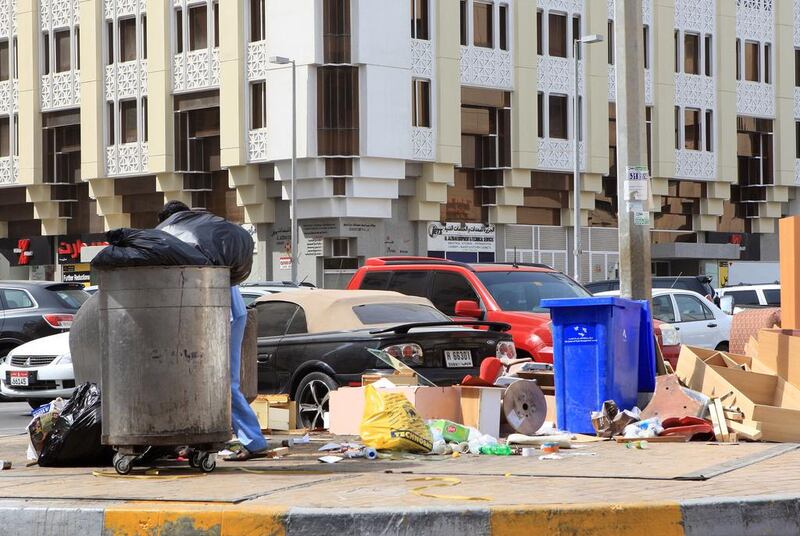Abu Dhabi has a growing litter problem, as do other emirates. Those of us who spend some time during our day walking become familiar with the sight of anything from cigarette stubs to food dumped in our streets and on our beaches. We find rubbish floating in the sea, in protected areas and in remote parts of the desert.
Littering is not a benign problem. The effect of rubbish dumped on our environment is severe. Plastic remains in our ecosystem for decades, affecting mammals and fish equally negatively. By eating fish caught from our own coasts, we are eating this waste.
Countless marine animals, including threatened species such as turtles, and land animals such as camels, die every year from ingesting kilos of plastic. Cigarette stubs raise a whole different long-term issue of the pollution of our grounds – and potentially groundwater – through their high toxicity.
Considerable resources have been spent to make our cities vibrant, liveable places that include carefully designed and irrigated green spaces.
That we find many of these spaces filled with cigarette stubs and other waste not only demonstrates the ignorance of many, but the intrinsic disrespect to our community and our environment of those who litter. This includes smokers, who appear to “own” virtually every public space, dropping cigarettes wherever they are.
Our problem is clearly not one of infrastructure. Bins can be found virtually everywhere, including special depositories for cigarette ends. Both households and commercial entities can rely on functional waste collection, which makes it even more surprising that anyone seems to find it necessary to dispose of rubbish in public spaces.
An obvious first port of call to understand the littering problem is one of culture, or perhaps better, a lack of culture of respect for public spaces and the environment. A large majority of the population comes from vastly different cultural and educational backgrounds and clearly not everyone understands the importance of protecting public spaces from litter and environmental pollution.
Education in schools is important, but the target group is only one out of many – most of those who litter are actually adults, and, as in the case of the countless smokers in the UAE, fairly convinced of their right to use any inch of public space as their personal ashtrays.
Education is one thing, awareness another. Mosques and media could play a much larger role in guiding social expectations over behaviour in public spaces.
Legislation and society can join forces to prevent this behaviour in the future, through a set of relatively easily applied regulations and by a society that moves on from walking away from such behaviour.
It is important to see that responses such as these are not actually difficult to follow up on, in the same way as we are perfectly able to fine traffic offences, and ensure minimum social behaviour codes in public. Why not enforce a minimum level of respect for our public spaces and our environment?
Perhaps we can take a look at our own society, and how it encouraged people to produce so much waste to start with.
The vast number of fast-food eateries and a seemingly popular culture of serving food and drinks in paper and plastic containers forms part of the architecture of urban living in this country.
We cannot eliminate all waste, but we could reduce the impact of our lifestyles on public spaces and the environment, for instance, by banning the use of plastic containers and by discouraging people from using plastic, for example by charging for plastic bags in supermarkets.
We can learn from other countries’ experience. The United Kingdom saw a fall in the use of plastic bags by more than 70 per cent after a 5p charge (about 22 fils) was introduced for plastic bags in supermarkets. In countries such as Germany, plastic bottles and drinking cans are returnable goods, where supermarkets add a surcharge to each bottle sold that is refundable upon return of the bottle to the supermarket. Consumer interest groups publicly criticise food producers who use excessive packaging for their products.
Needless to say, littering is not a problem unique to this part of the world and a number of countries and cities across the globe have found suitable mechanisms to target littering.
In principle, the protection of our precious natural resources should be at the centre of our society’s efforts of providing a place worth living for our children. In reality, it seems, we still take too much of our natural capital for granted.
Laura El Katiri is a consultant in Abu Dhabi specialising in economic, energy and environmental policy
On Twitter: @lauraelkatiri





